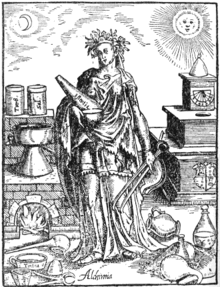Alcahest Alchemical Universal Solvent Key
The Theory and Practice of Alchemy part 1. For this ridiculed and despised craft still preserves intact the triple key to the gates of eternal life. Realizing, therefore, that alchemy is a mystery in three worlds-the divine, the human, and the elemental-it can easily be appreciated why the sages and philosophers created and evolved an.
Alkahest is a hypothetical 'universal solvent': able to dissolve every other substance, including gold. The famous alchemist Philippus Paracelsus described alkahest in the 1500s.Because of its perceived invaluable medicinal qualities, alchemists of the time were concerned with its plausibility and existence.
A Guide to Punjabi Weddings – Roka Ceremony. Posted on June 7, 2012 by Raj Kaur Bilkhu-Sohal. Punjabi weddings are renowned for being lavish and elaborative. If the rituals run consecutively, the average wedding would last a week. Punjabis are characterised by their generosity to guests with majestic dining and ample entertainment.  A Rokha lives approximately 20 years, excluding the incubation period. Mental Overview. Being an apex predator, the Rokha is inherently hostile to anything but other Rokha. The majority of species alive today is fair game to this beast, it has even been recorded to be seen snapping at bothersome flies disturbing its sleep. Rokha District is a district of Panjshir Province, Afghanistan.The estimated population in 2019 was 25,461. Districts of Afghanistan; References. Among the various wedding ceremonies in Indian marriage, the roka ceremony is considered to be one among the most significant ones as it marks the beginning of wedding bond between the couple.
A Rokha lives approximately 20 years, excluding the incubation period. Mental Overview. Being an apex predator, the Rokha is inherently hostile to anything but other Rokha. The majority of species alive today is fair game to this beast, it has even been recorded to be seen snapping at bothersome flies disturbing its sleep. Rokha District is a district of Panjshir Province, Afghanistan.The estimated population in 2019 was 25,461. Districts of Afghanistan; References. Among the various wedding ceremonies in Indian marriage, the roka ceremony is considered to be one among the most significant ones as it marks the beginning of wedding bond between the couple.
Etymology[edit]
The name is believed to have been invented by Paracelsus from Switzerland, who modeled it on similar words taken from Arabic, such as 'alkali'. Paracelsus' own recipe was based on caustic lime, alcohol, and carbonate of potash.[1] He believed that alkahest was, in fact, the philosopher's stone.
Issues with the concept[edit]
A potential problem involving alkahest is that, if it dissolves everything, then it cannot be placed into a container because it would dissolve the container. However, the alchemist Philalethes specified that alkahest dissolved only composed materials into their constituent, elemental parts;[2] hence, a hypothetical container made of a pure element (say, lead) would not be dissolved by alkahest. The old remark 'spit is the universal solvent' satirizes the idea, suggesting that instead of a solvent that would easily dissolve anything, the only 'real' solvent to anything is a great deal of hard work. In modern times, water is sometimes called the universal solvent, because it can dissolve a large variety of substances, due to its chemical polarity and amphoterism.
Paracelsus's successor[edit]
A later alchemist, Franciscus Mercurius van Helmont, picked up where Paracelsus had left off. In his major texts he also gave attention to transmutation of metals, to techniques for separating the pure from the impure parts of nature, and, of special significance, to a substance, called the liquor alkahest, which he accepted as one of the greatest secrets of Paracelsus and which he referred to as incorruptible dissolving water that could reduce any body into its first matter.
Van Helmont's writings pointed to even earlier medieval descriptions of a substance called sal alkali. Sal alkali, in turn, appears to have been a solution of caustic potash in alcohol, which dissolves many substances. Helmont described a process in which his alkahest (sal alkali) was applied to olive oil. The result was identified as a sweet oil, which was glycerol.[3]
See also[edit]
Notes[edit]
- ^Paracelsus' recipe is popular with chemists even today; a bath of potassium hydroxide in ethanol leaves laboratory glassware sparkling clean
- ^Philalethes, Eirenaeus. 'The Secret of the Immortal Liquor Called Alkahest or Ignis-Aqua'. Retrieved 14 May 2014.
- ^Leinhard, John. 'No.1569 Alkahest'. University of Houston. Retrieved 14 May 2014.
